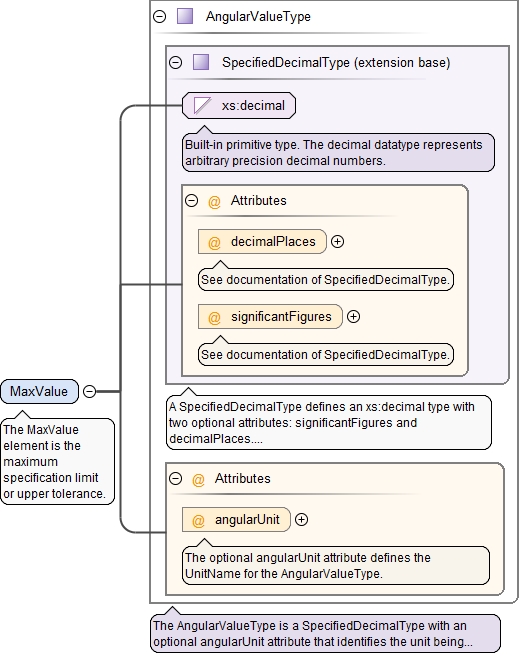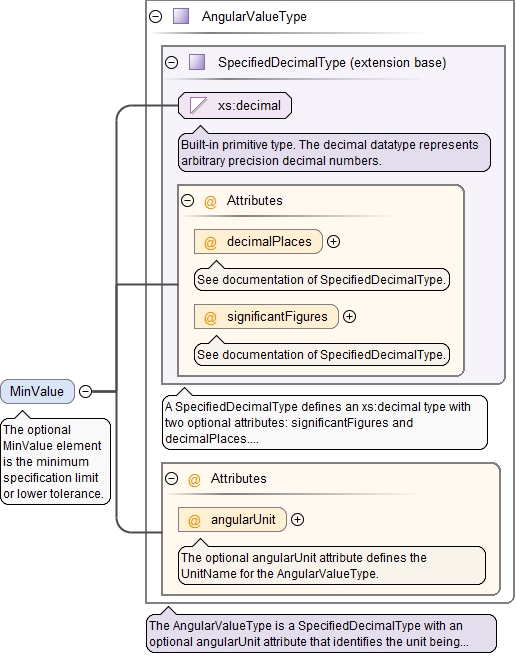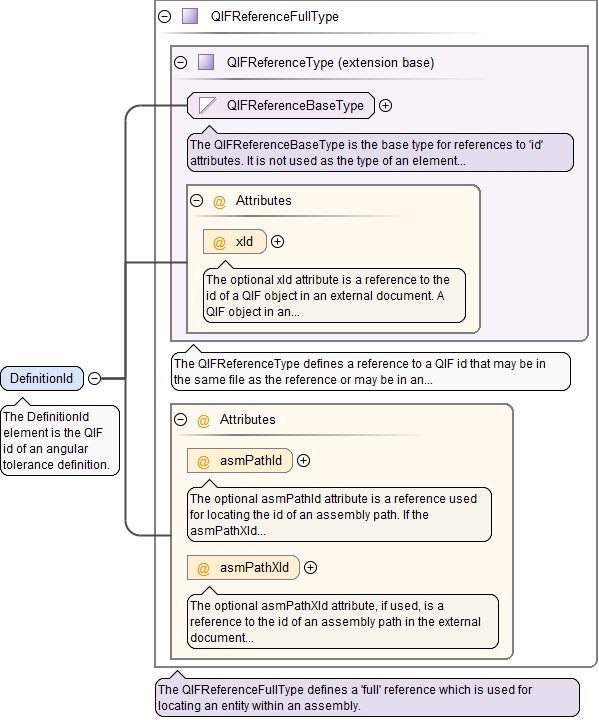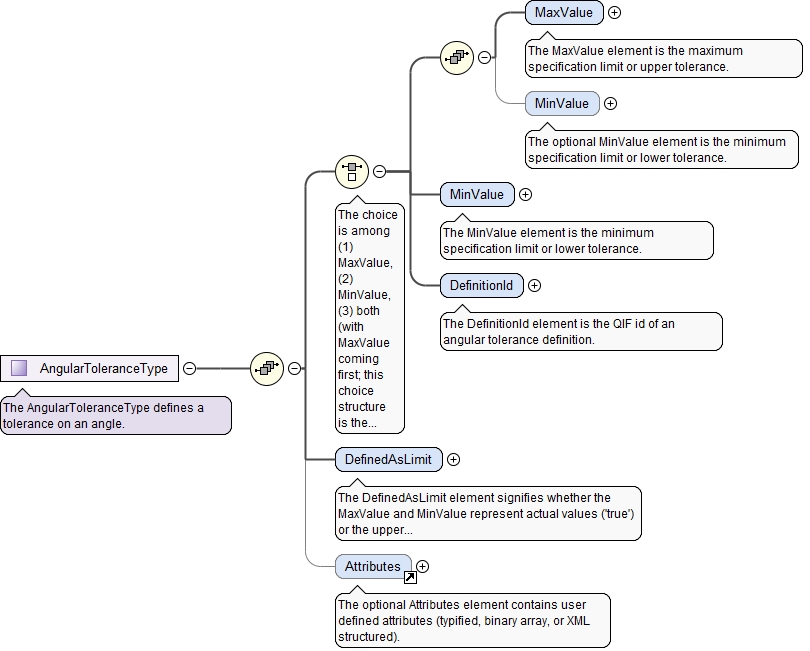<xs:complexType name="AngularToleranceType">
<xs:annotation>
<xs:documentation>The AngularToleranceType defines a tolerance on an angle.</xs:documentation>
</xs:annotation>
<xs:sequence>
<xs:choice>
<xs:annotation>
<xs:documentation>The choice is among (1) MaxValue, (2) MinValue, (3) both (with MaxValue coming first; this choice structure is the normal XML schema language structure for 'one or both'), or (4) a reference to a tolerance definition.</xs:documentation>
</xs:annotation>
<xs:sequence>
<xs:element name="MaxValue" type="AngularValueType">
<xs:annotation>
<xs:documentation>The MaxValue element is the maximum specification limit or upper tolerance.</xs:documentation>
</xs:annotation>
</xs:element>
<xs:element name="MinValue" type="AngularValueType" minOccurs="0">
<xs:annotation>
<xs:documentation>The optional MinValue element is the minimum specification limit or lower tolerance.</xs:documentation>
</xs:annotation>
</xs:element>
</xs:sequence>
<xs:element name="MinValue" type="AngularValueType">
<xs:annotation>
<xs:documentation>The MinValue element is the minimum specification limit or lower tolerance.</xs:documentation>
</xs:annotation>
</xs:element>
<xs:element name="DefinitionId" type="QIFReferenceFullType">
<xs:annotation>
<xs:documentation>The DefinitionId element is the QIF id of an angular tolerance definition.</xs:documentation>
</xs:annotation>
</xs:element>
</xs:choice>
<xs:element name="DefinedAsLimit" type="xs:boolean">
<xs:annotation>
<xs:documentation>The DefinedAsLimit element signifies whether the MaxValue and MinValue represent actual values ('true') or the upper and lower tolerances, respectively ('false'). Also when DefinedAsLimit is set to 'false', the MaxValue and MinValue may be negative.</xs:documentation>
</xs:annotation>
</xs:element>
<xs:element ref="Attributes" minOccurs="0">
<xs:annotation>
<xs:documentation>The optional Attributes element contains user defined attributes (typified, binary array, or XML structured).</xs:documentation>
</xs:annotation>
</xs:element>
</xs:sequence>
</xs:complexType> |




